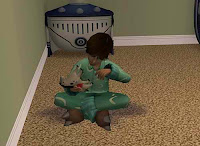"We have a son who we believe may have asperger syndrome and we were wondering how this disorder is diagnosed."

An Aspergers diagnosis is often a two-stage process. The first stage involves general developmental screening during the child’s checkups with a doctor or an early childhood health care provider. Kids who show some developmental problems are referred for additional evaluation. The second stage involves a thorough evaluation by a team of doctors and other health professionals with a wide range of specialties. At this stage, a youngster may be diagnosed as having some form of autism. Kids with an autism spectrum disorder can usually be reliably diagnosed by age 2, though research suggests that some screening tests can be helpful at 18 months or even younger.
Many individuals (e.g., family doctors, teachers, and moms/dads) may minimize signs of Aspergers at first, believing that kids will "catch up" with their friends. While you may be concerned about labeling your young youngster with Aspergers, the earlier the disorder is diagnosed, the sooner specific interventions may begin. Early intervention can reduce or prevent the more severe problems associated with Aspergers. Early intervention may also improve your youngster's IQ, language, and everyday functional skills (also called adaptive behavior).
Screening—
Your child’s checkup should include a developmental screening test, with specific Autism Spectrum Disorder (ASD) screening at 18 and 24 months. Screening for ASD is not the same as diagnosing ASD. Screening instruments are used as a first step to tell the doctor whether a youngster needs more testing. If your youngster's doctor does not routinely screen your youngster for ASD, ask that it be done.
For moms and dads, your own experiences and concerns about your youngster's development will be very important in the screening process. Keep your own notes about your youngster's development and look through family videos, photos, and baby albums to help you remember when you first noticed each behavior and when he/she reached certain developmental milestones.
Types of ASD Screening Instruments—
Sometimes the doctor will ask moms/dads questions about their youngster's symptoms to screen for Aspergers or some other form of Autism. Other screening instruments combine information from parents with the doctor's own observations of the youngster. Examples of screening instruments for toddlers and preschoolers include:
• Checklist of Autism in Toddlers (CHAT)
• Communication and Symbolic Behavior Scales (CSBS).
• Modified Checklist for Autism in Toddlers (M-CHAT)
• Screening Tool for Autism in Two-Year-Olds (STAT)
• Social Communication Questionnaire (SCQ)
To screen for mild Autism in older kids, the doctor may rely on different screening instruments, such as:
• Australian Scale for Asperger's Syndrome (ASAS)
• Autism Spectrum Screening Questionnaire (ASSQ)
• Childhood Asperger Syndrome Test (CAST)
Comprehensive Diagnostic Evaluation—
The second stage of diagnosis must be thorough in order to find whether other conditions may be causing your youngster's symptoms. A team that includes a psychologist, a neurologist, a psychiatrist, a speech therapist, or other professionals experienced in diagnosing Aspergers may do this evaluation. The evaluation may assess the youngster's cognitive level (i.e., thinking skills), language level, and adaptive behavior (i.e., age-appropriate skills needed to complete daily activities independently, for example eating, dressing, and toileting).
Because Aspergers is a complex disorder that sometimes occurs along with other illnesses or learning disorders, the comprehensive evaluation may include brain imaging and gene tests, along with in-depth memory, problem-solving, and language testing. Kids with any delayed development should also get a hearing test and be screened for lead poisoning as part of the comprehensive evaluation.
Any kid can lose his/her hearing (for various reasons), but common Aspergers symptoms (e.g., not turning to face a person calling their name) can make it seem that the youngster can’t hear – when in fact he/she can. If a youngster is not responding to speech, especially to his/her name, it's important for the doctor to test whether a youngster has hearing loss.
The evaluation process is a good time for moms and dads to ask questions and get advice from the whole evaluation team. The outcome of the evaluation will help plan for treatment and interventions to help your youngster. Be sure to ask who you can contact with follow-up questions.



.jpg)


